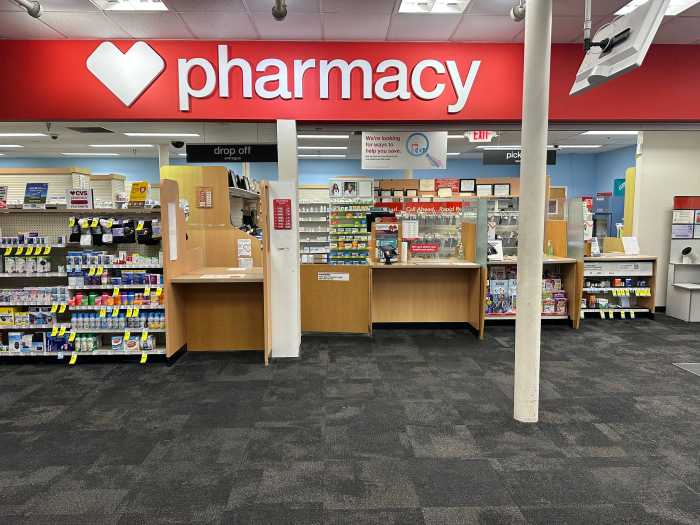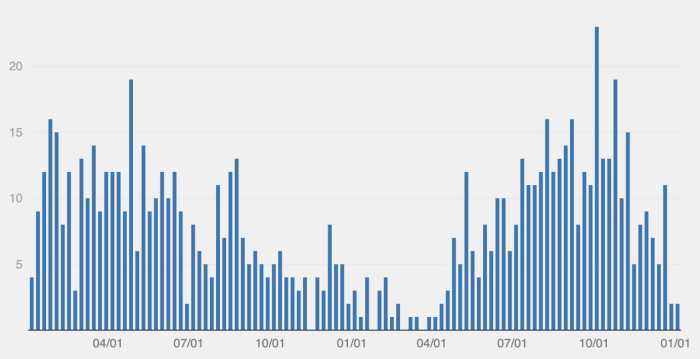The Centers for Disease Control and Prevention (CDC) on Oct. 2 rolled out draft guidelines recommending the use of the antibiotic doxycycline as a form of post-exposure prophylaxis (doxy PEP) to prevent the spread of bacterial sexually transmitted infections (STIs) in the LGBTQ community amid a national rise in syphilis and gonorrhea infections.
PEP typically refers to the practice of taking medication when an individual believe they may have been exposed to an STI after having sex. PEP is already available in New York City for individuals exposed to HIV.
The CDC’s new guidelines, specifically geared towards gay and bisexual men and transgender women at risk of contracting an STI, comes after research published in April found that taking doxy PEP could help lower rates of syphilis, gonorrhea, and chlamydia.
The CDC’s guidelines note that doxy PEP should be administered in addition to a “comprehensive sexual health approach including risk reduction counseling, STI screening and treatment, recommended vaccination, and linkage to HIV pre-exposure prophylaxis (PrEP), HIV care, or other services, as appropriate.”
On Sept. 25 the New York State Department of Health AIDS Institute’s released its own guidelines recommending the use of doxy PEP for cisgender men and transgender women who engage in condomless sex with partners assigned male at birth, and have had a bacterial STI diagnosed in the past year.
Dr. Asa Radix, senior director of research and education at Callen-Lorde, a New York City LGBTQ healthcare center, welcomed the CDC’s guidelines.
“We’ve been waiting for this,” Radix told Gay City News in an interview. “We are very optimistic about being able to roll this out to people who want it.”
“This is not something new; doxycycline has been out for a long time,” Radix said. “We’ve used it for a while as a treatment for chlamydia. It’s one of the antibiotics that has many uses. It’s well tolerated by many people.”
At the same time, Radix emphasized, doxy PEP does not eliminate the risk of contracting bacterial STIs. Taking it “doesn’t mean you can stop getting screened for STIs,” Radix said.
STIs are on the rise across the country. According to CDC data from 2021, syphilis cases have increased by 74% since 2017, while gonorrhea increased by 28%. The data also shows that nearly one third of all reported cases of gonorrhea were from gay and bisexual men.
Radix said Callen-Lorde has seen rates consistent with national statistics. Callen-Lorde is hopeful doxy PEP will reduce the rates of STIs, and Radix said it could help alleviate the nationwide shortage in Bicillin, an antibiotic treatment for syphilis.
Some providers at Callen-Lorde had already begun prescribing doxy PEP to people that request it, Radix said, and since the release of the New York State guidelines they have begun rolling it out at a greater rate.
Leandro Mena, the CDC’s director for the division of STI prevention, said in a statement that “the new guidelines will offer an important resource for healthcare providers to inform the use of Doxy PEP for preventing bacterial STI infections.”
Mena stressed, however, that more research is necessary before Doxy PEP is recommended in the broader population.
“Important questions remain about the effectiveness of this approach for other populations, as well as potential long-term development of antimicrobial resistance and impacts on the microbiome,” Mena said. “Given potential unknowns, CDC is calling for long-term monitoring and evaluation as more data become available.”
The rollout of doxy PEP should also take into consideration historic racial disparities in medical treatments, Radix explained.
“We don’t want to see what we’ve seen with HIV PrEP, where white cisgender men are on it and men of color are not on it,” Radix said. “We have to be careful we don’t create more disparities.”
The proposed guidelines are subject to a 45-day review, which will end on Nov. 16. The public can make comments through an online portal or via mail to Division of STD Prevention, Centers for Disease Control and Prevention, 1600 Clifton Road NE, Mailstop US12–2, Atlanta, GA 30329, Attn: Docket No. CDC–2023–0080.


































